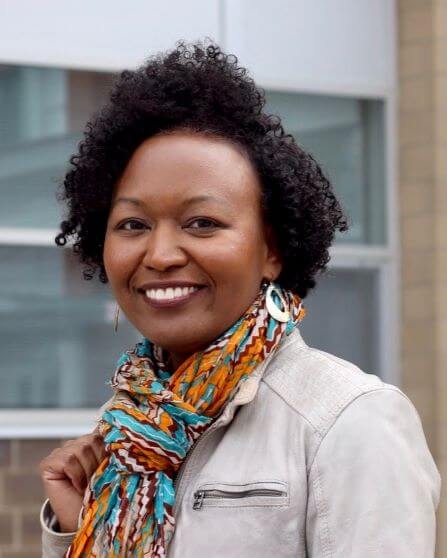- Home
- About Us
- The Team / Contact Us
- Books and Resources
- Privacy Policy
- Nonprofit Employer of Choice Award

 I am most comfortable in "thinking mode," and I’m constantly having to work on moving my ideas to action. So, I empathize with nonprofit leaders and teams who are struggling to move from awareness to action, and have not yet seen shifts in organizational structures, or individual behaviours and attitudes related to equity and justice. In my experience, the missing piece between knowing and action is accountability, and more specifically developing an accountability practice.
I am most comfortable in "thinking mode," and I’m constantly having to work on moving my ideas to action. So, I empathize with nonprofit leaders and teams who are struggling to move from awareness to action, and have not yet seen shifts in organizational structures, or individual behaviours and attitudes related to equity and justice. In my experience, the missing piece between knowing and action is accountability, and more specifically developing an accountability practice.
Practice makes progress
Building an equity and justice practice requires individual and collective accountability. As a racial and gender equity facilitator, the leaders and staff teams that I work with inevitably enter into a conversation about what it means to take responsibility and accountability in equity work. In fact, it is usually a recurring and evolving conversation because we explore what individual and collective responsibility looks like, delving into the organizational structure and culture changes that are required to integrate equity and inclusivity practices into day-to-day activities.
Using an Equity-Centred Practice Integration Model, I encourage individuals and teams to explore what it means to:
Building a consistent and intentional equity practice
Reflecting on your responsibility and creating an accountability practice is critical, and can accelerate your impact—enabling you to actualize the changes you want to achieve.
When we delve into accountability, I start by asking:
The most vulnerable conversations that I have, are often with leaders about accountability and responsibility. It can be humbling to face and examine your power, privilege and how you might benefit from the existing status quo. As noted by one leader, there is a lot to unpack, and a lot to let go of.
A definition of accountability
In the equity and inclusion space, accountability is about creating processes, practices, and checks and balances that help to centre the experiences, wisdom and knowledge of equity deserving groups. It is about the mechanisms you use to stay true to your commitments, goals and actions. It is about building relationships (with equity deserving groups) for deeper understanding, following up with them on structural and policy changes, and attitudinal changes that remove barriers and enhancing inclusivity. It's also about grounding and embedding your work in equity and justice values.
It also might be defined as “what kicks in when convenience runs out. 1”
In a practical sense, accountability requires learning about yourself and understanding what motivates you to action. Ask yourself, “what will make it easy for me to engage and stay committed?” If you tell a friend you are going to do something, are you more likely to do it? If you team up with peers for an activity, are you more likely to show up? If you plan in advance and remove distractions, are you more likely to engage?
Some of the leaders I work with have established internal or external accountability groups. External community groups can be extremely valuable as both a resource and an accountability partner. Others have created feasible equity goals that are linked to performance indicators, established a peer circle of support, or invested in coaching and mentoring. For some it’s about value-driven leadership, for others it’s about contributing and modeling change by becoming that champion. Others focus on building authentic relationships with community and reporting back to that community.
Following through on your equity and justice goals
Individuals and collective teams need to explore what taking responsibility looks like and feels like. What gets you (us) to move from an idea or reflection, to actualization? What are you standing up for? What are you contributing? What are you willing to give up?
In life, moving from an idea to action might be something we do unconsciously or something we do with ease because we have an established process. When it comes to anti- racism, gender equity and addressing other systems of oppression, delving into accountability and responsibility and creating a strategy, plan or process around this results in a more consistent and intentional journey.
Chanel Grenaway has over 20 years of experience in the nonprofit sector focused on integrating equity and intersectionality practice into workplace cultures. She has worked with Foundations, multi-service nonprofit agencies and academic institutions. She currently supports leaders to improve their equity and inclusion outcomes through equity assessments, training and knowledge building, community engagement, and action planning. www.chanelgrenaway.com
1 Berman Cushing, B. with L. Cabbil, M. Freeman, J. Hitchcock and K. Richards. (2010). Accountability and White Anti-Racist Organizing: Stories from Our Work.